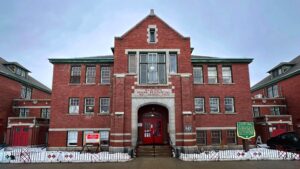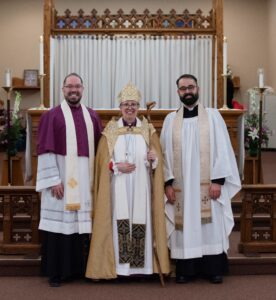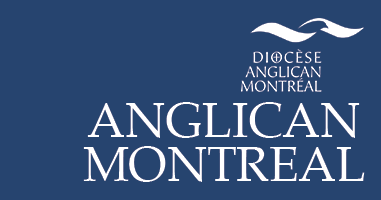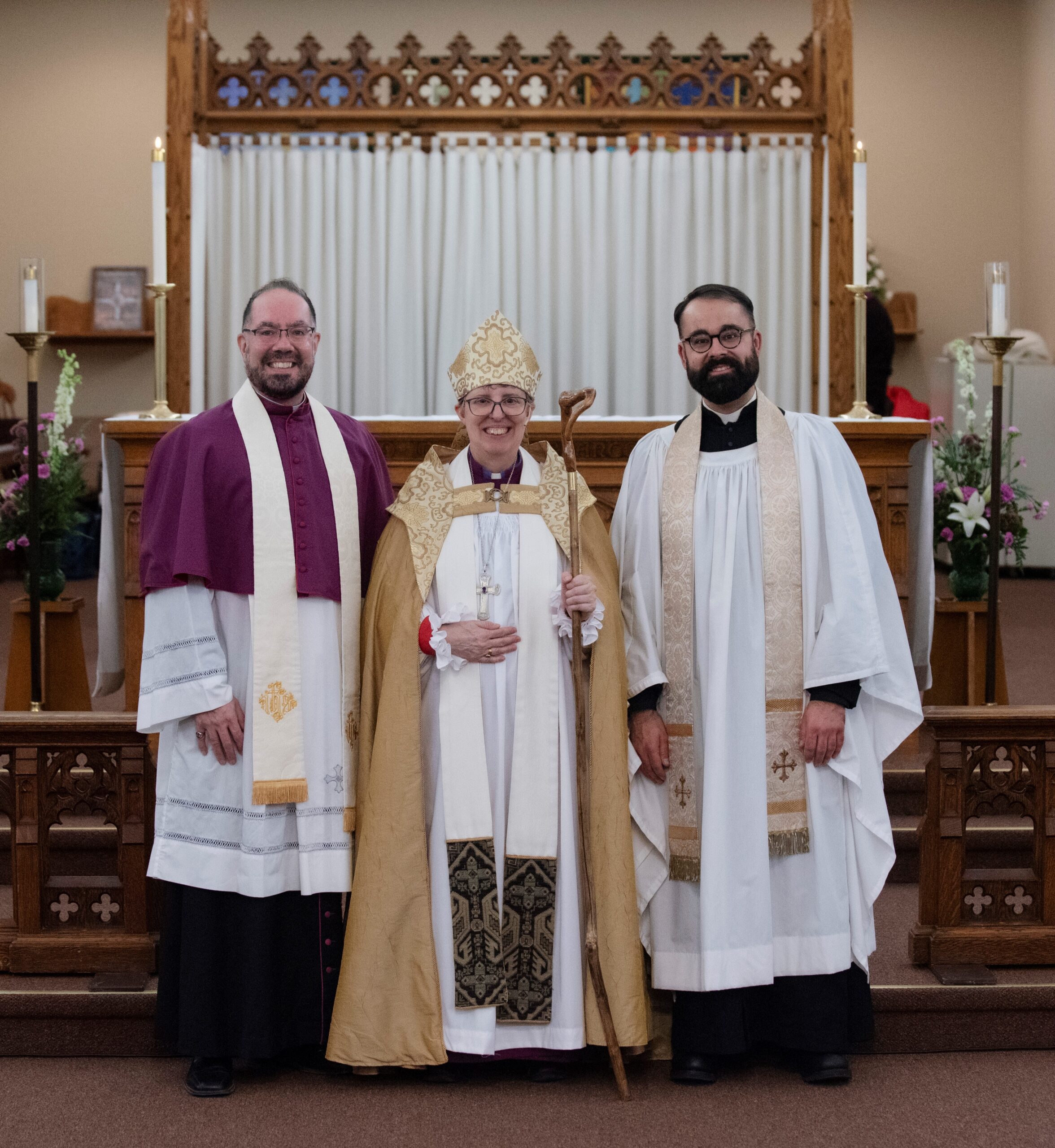

The Diocese of Montreal has had a partnership with the Territory of the People (formerly known as the Anglican Parishes of the Central Interior) since 2008. The Territory of the People is located in south central British Columbia, and spans some 166,500 square kilometres; roughly eight times the size of our own diocese.
This past January, the Vicar General, the Ven. Robert Camara, and myself had the honour of traveling to the Territory for the consecration of their new bishop, the Rt. Rev. Clara Plamondon. The consecration took place at St. Pauls Cathedral in Kamloops: Robert and I were welcomed as esteemed visitors from “the far east”!
Diocesan partners benefit from sharing their own experiences and by learning from each other. One of the invaluable things that we can learn from our relationship with the Territory is a greater awareness of the Residential School experience by Indigenous peoples; a dark chapter in the Church’s history.
The Anglican Parishes of the Central Interior was formed in 2002 after the Diocese of the Cariboo (founded in 1914) was forced into bankruptcy, resulting from litigation settlements to survivors of abuse in the Residential School system. As part of our time in Kamloops, Robert and I visited the former St. Louis Residential School.
The school opened in 1890. It soon became the largest Residential School in Canada, with enrolment peaking at 500 children in the 1950’s. The school closed in 1978, and is now owned by the Tkʼemlúps te Secwépemc First Nation. The building houses a museum dedicated to the school’s past. A monument stands at the entrance of the building, honouring “all the survivors” who attended the school. In 2021, ground-penetrating radar discovered over 200 potential unmarked graves around the school site.
The Truth and Reconciliation Commission of Canada determined that Residential Schools were nothing short of “cultural genocide,” intended to destroy Indigenous communities and their ways of life. Indeed, the renaming of the Anglican Parishes of the Central Interior as “the Territory of the People” in 2015 was a deliberate attempt to move away from the trauma still associated with words like “Church” or “Anglican.” Standing in front of that red brick building, the awareness of the Residential School system became much more real.
Another learning that can be gained from our partnership with the Territory is the ability to do more with less. The Territory is considerably larger than our diocese, and its parishes are much more geographically isolated, often separated by hundreds of kilometres. Despite this, they function with fewer financial resources, very few clergy, and a streamlined administrative staff. They have a history of being creative and resilient about the ways in which they do ministry. The Territory also has a strong commitment to lay leadership.
Pastoral Elders provide important lay leadership within the Indigenous communities of the Territory, such as providing prayer at funerals and feasts, and leading Sunday worship. They care for their communities. They hold the language and customs of their people in balance with the language and customs of the Christian faith. The consecration service included a drumming procession, and a traditional welcome to the Territory by some of these elders.
Partnership dioceses walk together and share their experiences. They support each other, and rejoice in all that God has created. We met new friends in Kamloops, rekindled old relationships, shared our stories, and prayed together. We hope that Bishop Clara will be able to join us at our own synod this summer. The Diocese of Montreal is deeply enriched because of this ongoing partnership with the Territory of the People.


